- Home
- Catherine Coulter
The Beginning
The Beginning Read online
PRAISE FOR CATHERINE COULTER’S
FBI THRILLER SERIES
“Fast-paced.”
—People
“This terrific thriller will drag you into its chilling web of terror and not let go until the last paragraph…A ripping good read.”
—The San Francisco Examiner
“A good storyteller…Coulter always keeps the pace brisk.”
—Fort Worth Star-Telegram
“With possible blackmail, intra-judiciary rivalries, and personal peccadilloes, there’s more than enough intrigue—and suspects—for full court standing in this snappy page-turner…A zesty read.”
—Book Page
“Twisted villains…intriguing escapism…The latest in the series featuring likable married FBI agents Lacey Sherlock and Dillon Savich.”
—Lansing (MI) State Journal
“Coulter takes readers on a chilling and suspenseful ride…taut, fast-paced, hard to put down.”
—Cedar Rapids Gazette
“The perfect suspense thriller, loaded with plenty of action.”
—The Best Reviews
“The newest installment in Coulter’s FBI series delivers…a fast-moving investigation, a mind-bending mystery…The mystery at the heart…is intriguing and the pacing is brisk.”
—Publishers Weekly
“Fast-paced, romantic…Coulter gets better and more cinematic with each of her suspenseful FBI adventures.”
—Booklist
Don’t Miss Catherine Coulter’s
FBI Thriller Series
THE COVE (1996)
THE MAZE (1997)
THE TARGET (1998)
THE EDGE (1999)
RIPTIDE (2000)
HEMLOCK BAY (2001)
ELEVENTH HOUR (2002)
BLINDSIDE (2003)
BLOWOUT (2004)
POINT BLANK (2005)
THE BEGINNING
CATHERINE COULTER
BERKLEY BOOKS, NEW YORK
THE BERKLEY PUBLISHING GROUP
Published by the Penguin Group
Penguin Group (USA) Inc.
375 Hudson Street, New York, New York 10014, USA
Penguin Group (Canada), 90 Eglinton Avenue East, Suite 700, Toronto, Ontario M4P 2Y3, Canada
(a division of Pearson Penguin Canada Inc.)
Penguin Books Ltd., 80 Strand, London WC2R 0RL, England
Penguin Group Ireland, 25 St. Stephen’s Green, Dublin 2, Ireland (a division of Penguin Books Ltd.)
Penguin Group (Australia), 250 Camberwell Road, Camberwell, Victoria 3124, Australia
(a division of Pearson Australia Group Pty. Ltd.)
Penguin Books India Pvt. Ltd., 11 Community Centre, Panchsheel Park, New Delhi—110 017, India
Penguin Group (NZ), Cnr. Airborne and Rosedale Roads, Albany, Auckland 1310, New Zealand
(a division of Pearson New Zealand Ltd.)
Penguin Books (South Africa) (Pty.) Ltd., 24 Sturdee Avenue, Rosebank, Johannesburg 2196, South Africa
Penguin Books Ltd., Registered Offices: 80 Strand, London WC2R 0RL, England
This is a work of fiction. Names, characters, places, and incidents either are the product of the author’s imagination or are used fictitiously, and any resemblance to actual persons, living or dead, business establishments, events, or locales is entirely coincidental. The publisher does not have any control over and does not assume any responsibility for author or third-party websites or their content.
Copyright © 2005 by Catherine Coulter.
The Cove copyright © 1996 by Catherine Coulter.
The Maze copyright © 1997 by Catherine Coulter.
All rights reserved.
No part of this book may be reproduced, scanned, or distributed in any printed or electronic form without permission. Please do not participate in or encourage piracy of copyrighted materials in violation of the author’s rights. Purchase only authorized editions.
BERKLEY is a registered trademark of Penguin Group (USA) Inc.
The “B” design is a trademark belonging to Penguin Group (USA) Inc.
ISBN: 978-1-1012-0756-7
This book has been catalogued with the Library of Congress.
CONTENTS
THE COVE
THE MAZE
THE COVE
ACKNOWLEDGMENTS
To my creative and talented sister, Diane Coulter, who said to me, “Let me tell you about this little town on the coast of Oregon called The Cove.” And thus The Cove was born.
To my assistant, Karen Evans, who snits without fear of death, and with charm.
And finally to my husband, Anton, partner and confidant, who manages to keep everything in proper perspective.
ONE
Someone was watching her. She tugged on the black wig, flattening it against her ears, and quickly put on another coat of deep red lipstick, holding the mirror up so she could see behind her.
The young Marine saw her face in the mirror and grinned at her. She jumped as if she’d been shot. Just stop it. He’s harmless, he’s only flirting. He couldn’t be more than eighteen, his head all shaved, his cheeks as smooth as hers. She tilted the mirror to see more. The woman sitting beside him was reading a Dick Francis novel. In the seat behind them a young couple were leaning into each other, asleep.
The seat in front of her was empty. The Greyhound driver was whistling Eric Clapton’s “Tears in Heaven,” a song that always twisted up her insides. The only one who seemed to notice her was that young Marine, who’d gotten on at the last stop in Portland. He was probably going home to see his eighteen-year-old girlfriend. He wasn’t after her, surely, but someone was. She wouldn’t be fooled again. They’d taught her so much. No, she’d never be fooled again.
She put the mirror back into her purse and fastened the flap. She stared at her fingers, at the white line where the wedding ring had been until three days ago. She’d tried to pull it off for the past six months but hadn’t managed to do it. She had been too out of it even to fasten the Velcro on her sneakers—when they allowed her sneakers—much less work off a tight ring.
Soon, she thought, soon she would be safe. Her mother would be safe too. Oh, God, Noelle—sobbing in the middle of the night when she didn’t know anyone could hear her. But without her there, they couldn’t do a thing to Noelle. Odd how she rarely thought of Noelle as her mother anymore, not like she had ten years before, when Noelle had listened to all her teenage problems, taken her shopping, driven her to her soccer games. So much they’d done together. Before. Yes, before that night when she’d seen her father slam his fist into her mother’s chest and she’d heard the cracking of ribs.
She’d run in, screaming at him to leave her mother alone, and jumped on his back. He was so surprised, so shocked, that he didn’t strike her. He shook her off, turned, and shouted down at her, “Mind your own business, Susan! This doesn’t concern you.” She stared at him, all the fear and hatred she felt for him at that moment clear on her face.
“Doesn’t concern me? She’s my mother, you bastard. Don’t you dare hit her again!”
He looked calm, but she wasn’t fooled; she saw the pulse pounding madly in his neck. “It was her fault, Susan. Mind your own damned business. Do you hear me? It was her fault.” He took a step toward her mother, his fist raised. She picked up the Waterford carafe off his desk, yelling, “Touch her and I’ll bash your head in.”
He was panting now, turning swiftly to face her again, no more calm expression to fool her. His face was distorted with rage. “Bitch! Damned interfering little bitch! I’ll make you pay for this, Susan. No one goes against me, particularly a spoiled little girl who’s never done a thing in her life except spend her father’s money.” He didn’t hit Noelle again. He looked at both
of them with naked fury, then strode out of the house, slamming the door behind him.
“Yeah, right,” she said and very carefully and slowly set the Waterford carafe down before she dropped it.
She wanted to call an ambulance but her mother wouldn’t allow it. “You can’t,” she said, her voice as cracked as her ribs. “You can’t, Sally. Your father would be ruined if anyone believed us. I can’t allow that to happen.”
“He deserves to be ruined,” Sally said, but she obeyed. She was only sixteen years old, home for the weekend from her private girls’ school in Laurelberg, Virginia. Why wouldn’t they be believed?
“No, dearest,” her mother whispered, the pain bowing her in on herself. “No. Get me that blue bottle of pills in the medicine cabinet. Hurry, Sally. The blue bottle.”
As she watched her mother swallow three of the pills, groaning as she did so, she realized the pills were there because her father had struck her mother before. Deep down, Sally knew it. She hated herself because she’d never asked, never said a word.
That night her mother became Noelle, and the next week Sally left her girls’ school and moved back to her parents’ home in Washington, D.C., in hopes of protecting her mother. She read everything she could find on abuse—not that it helped.
That was ten years ago, though sometimes it seemed like last week. Noelle had stayed with her husband, refusing to seek counseling, refusing to read any of the books Sally brought her. It made no sense to Sally, but she’d stayed as close as possible, until she’d met Scott Brainerd at the Whistler exhibition at the National Gallery of Art and married him two months later.
She didn’t want to think about Scott or about her father now. Despite her vigilance, she knew her father had hit Noelle whenever she happened to be gone from the house. She’d seen the bruises her mother had tried to hide from her, seen her walking carefully, like an old woman. Once he broke her mother’s arm, but Noelle refused to go to the hospital, to the doctor, and ordered Susan to keep quiet. Her father just looked at her, daring her, and she did nothing. Nothing.
Her fingers rubbed unconsciously over the white line where the ring had been. She could remember the past so clearly—her first day at school, when she was on the seesaw and a little boy pointed, laughing that he saw her panties.
It was just the past week that was a near blank in her mind. The week her father had been killed. The whole week was like a very long dream that had almost dissolved into nothing more than an occasional wisp of memory with the coming of the morning.
Sally knew she’d been at her parents’ house that night, but she couldn’t remember anything more, at least nothing she could grasp—just vague shadows that blurred, then faded in and out. But they didn’t know that. They wanted her badly, she’d realized that soon enough. If they couldn’t use her to prove that Noelle had killed her husband, why, then they’d take her and prove that she’d killed her father. Why not? Other children had murdered their fathers. Although there were plenty of times she’d wanted to, she didn’t believe she’d killed him.
On the other hand, she simply didn’t know. It was all a blank, locked tightly away in her brain. She knew she was capable of killing that bastard, but had she? There were many people who could have wanted her father dead. Perhaps they’d found out she’d been there after all. Yes, that was it. She’d been a witness and they knew it. She probably had been. She just didn’t remember.
She had to stay focused on the present. She looked out the Greyhound window at the small town the bus was going through. Ugly gray exhaust spewed out the back of the bus. She bet the locals loved that.
They were driving along Highway 101 southwest. Another half hour, she thought, just thirty more minutes, and she wouldn’t have to worry anymore, at least for a while. She would take any safe time she could get. Soon she wouldn’t have to be afraid of anyone who chanced to look at her. No one knew about her aunt, no one.
She was terrified the young Marine would get off after her when she stepped down from the bus at the junction of highways 101 and 101A. But he didn’t. No one did. She stood there with her one small bag, staring at the young Marine, who’d turned around in his seat and was looking back at her. She tamped down on her fear. He’d only wanted to flirt, not hurt her. She thought he had lousy taste in women. She watched for cars, but none were coming from either direction.
She walked west along Highway 101A to The Cove. Highway 101A didn’t go east.
“YES?”
She stared at the woman she’d seen once in her life when she was no more than seven years old. She looked like a hippie, a colorful scarf wrapped around her long, curling, dark hair, huge gold hoops dangling from her ears, her skirt ankle-length and painted all in dark blues and browns. She was wearing blue sneakers. Her face was strong, her cheekbones high and prominent, her chin sharp, her eyes dark and intelligent. Actually, she was the most beautiful woman Sally had ever seen.
“Aunt Amabel?”
“What did you say?” Amabel stared at the young woman who stood on her front doorstep, a young woman who didn’t look cheap with all that makeup she’d piled on her face, just exhausted and sickly pale. And frightened. Then, of course, she knew. She had known deep down that she would come. Yes, she’d known, but it still shook her.
“I’m Sally,” she said and pulled off the black wig and took out half a dozen hairpins. Thick, waving dark blond hair tumbled down to her shoulders. “Maybe you called me Susan? Not many people do anymore.”
The woman was shaking her head back and forth, those dazzling earrings slapping against her neck. “It’s really you, Sally?” She rocked back on her heels.
“Yes.”
“Oh, my,” Amabel said and quickly pulled her niece against her, hugged her tightly, then pushed her back to look at her. “Oh, my goodness. I’ve been so worried. I finally heard the news about your papa, but I didn’t know if I should call Noelle. You know how she is. I was going to call her tonight when the rates go down, but you’re here, Sally. I guess I hoped you’d come to me. What’s happened? Is your mama all right?”
“Noelle is fine, I think,” Sally said. “I didn’t know where else to go, so I came here. Can I stay here, Aunt Amabel, for a little while? Just until I can think of something, make some plans?”
“Of course you can. Look at that black wig and all that makeup on your face. Why, baby?”
The endearment undid her. She’d not cried, not once, until now, until this woman she didn’t really know called her “baby.” Her aunt’s hands were stroking her back, her voice was low and soothing. “It’s all right, lovey. I promise you, everything will be all right now. Come in, Sally, and I’ll take care of you. That’s what I told your mama when I first saw you. You were the cutest little thing, so skinny, your arms and legs wobbly like a colt’s, and the biggest smile I’d ever seen. I wanted to take care of you then. You’ll be safe here. Come on, baby.”
The damnable tears wouldn’t stop. They kept dripping down her face, ruining the god-awful thick black mascara. She even tasted it, and when she swiped her hand over her face it came away with black streaks.
“I look like a circus clown,” she said, swallowing hard to stop the tears, to smile, to make herself smile. She took out the green-colored contacts. With the crying, they hurt.
“No, you look like a little girl trying on her mama’s makeup. That’s right, take out those ugly contacts. Ah, now you’ve got your pretty blue eyes again. Come to the kitchen and I’ll make you some tea. I always put a drop of brandy in mine. It wouldn’t hurt you one little bit. How old are you now, Sally?”
“Twenty-six, I think.”
“What do you mean, you think?” her aunt said, cocking her head to one side, making the gold hoop earring hang straight down almost to her shoulder.
Sally couldn’t tell her that though she thought her birthday had come and gone in that place, she couldn’t seem to see the day in her mind, couldn’t dredge up anyone saying anything to her, not that she could imagine
it anyway. She couldn’t even remember if her father had been there. She prayed he hadn’t. She couldn’t tell Amabel about that, she just couldn’t. She shook her head, smiled, and said, not lying well, “It was just a way of speaking, Aunt Amabel. I’d love some tea and a drop of brandy.”
Amabel sat her niece down in the kitchen at her old pine table that had three magazines under one leg to keep it steady. At least she’d made cushions for the wooden seats so they were comfortable. She put the kettle on the gas burner and turned it on. “There,” she said. “That won’t take too long.”
Sally watched her put a Lipton tea bag into each cup and pour in the brandy. Amabel said, “I always pour the brandy in first. It soaks into the tea bag and makes the flavor stronger. Brandy’s expensive and I’ve got to make it last. This bottle”—she lifted the Christian Brothers—“is going on its third month. Not bad. You’ll see, you’ll like it.”
“No one followed me, Aunt Amabel. I was really careful. I imagine you know that everyone is after me. But I managed to get away. As far as I know, no one knows about you. Noelle never told a soul. Only Father knew about you, and he’s dead.”
Amabel nodded. Sally sat quietly, watching her move around the small kitchen, each action smooth and efficient. She was graceful, this aunt of hers in her hippie clothes. She looked at those strong hands, the long fingers, the short, buffed nails painted an awesome bright red. Amabel was an artist, she remembered that now. She couldn’t see any resemblance at all to Noelle, Amabel’s younger sister. Amabel was dark as a gypsy, while Noelle was blond and fair-complexioned, blue-eyed, and soft as a pillow.
Like me, Sally thought. But Sally wasn’t soft anymore. She was hard as a brick.
She waited, expecting Amabel to whip out a deck of cards and tell her fortune. She wondered why none of Noelle’s family ever spoke of Amabel. What had she done that was so terrible?

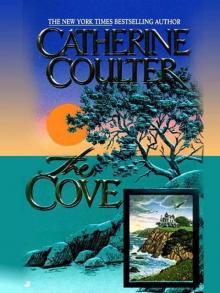 The Cove
The Cove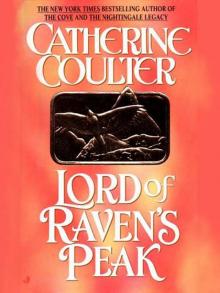 Lord of Raven's Peak
Lord of Raven's Peak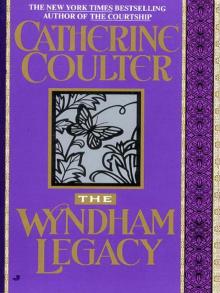 The Wyndham Legacy
The Wyndham Legacy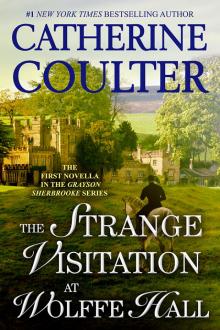 The Strange Visitation at Wolffe Hall
The Strange Visitation at Wolffe Hall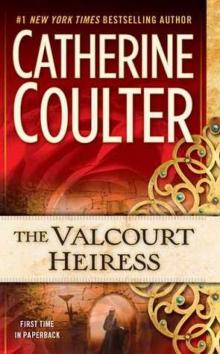 The Valcourt Heiress
The Valcourt Heiress Bombshell
Bombshell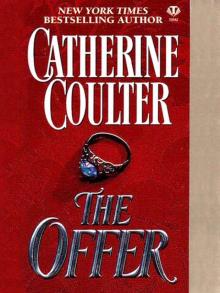 The Offer
The Offer The Edge
The Edge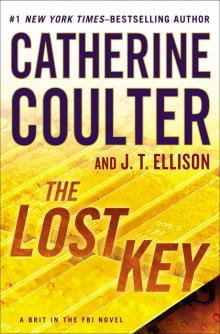 The Lost Key
The Lost Key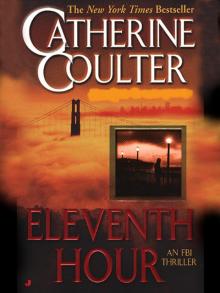 Eleventh Hour
Eleventh Hour Blindside
Blindside Devil's Daughter
Devil's Daughter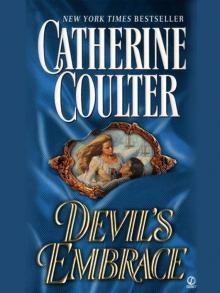 Devil's Embrace
Devil's Embrace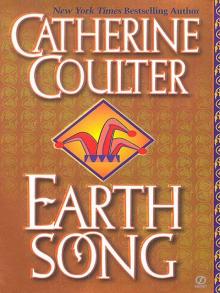 Earth Song
Earth Song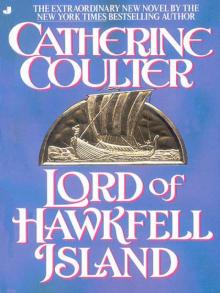 Lord of Hawkfell Island
Lord of Hawkfell Island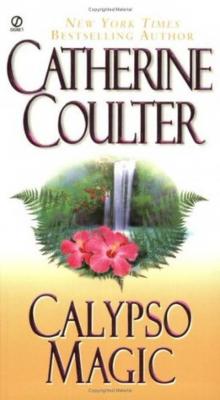 Calypso Magic
Calypso Magic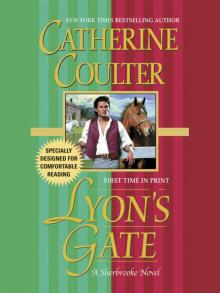 Lyon's Gate
Lyon's Gate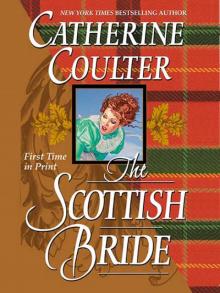 The Scottish Bride
The Scottish Bride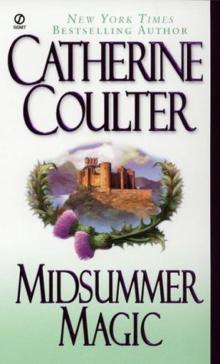 Midsummer Magic
Midsummer Magic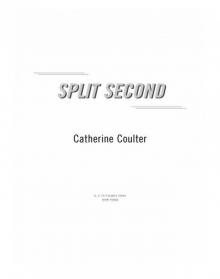 Split Second
Split Second Enigma
Enigma Blowout
Blowout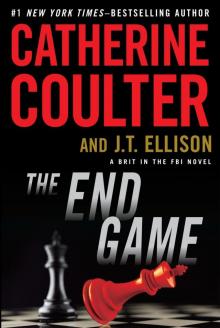 The End Game
The End Game Double Take
Double Take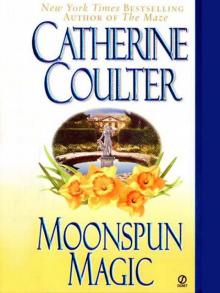 Moonspun Magic
Moonspun Magic The Courtship
The Courtship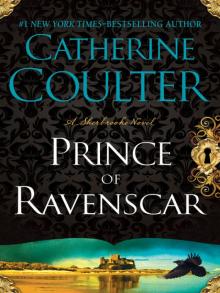 Prince of Ravenscar
Prince of Ravenscar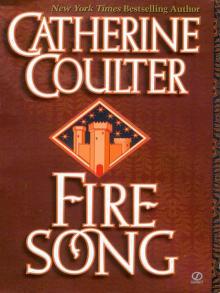 Fire Song
Fire Song Wizard's Daughter
Wizard's Daughter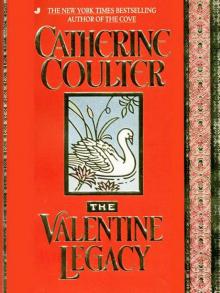 The Valentine Legacy
The Valentine Legacy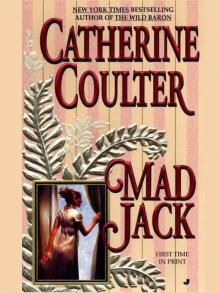 Mad Jack
Mad Jack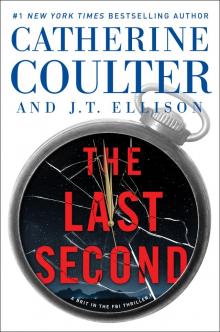 The Last Second
The Last Second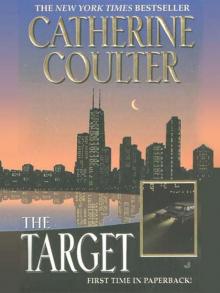 The Target
The Target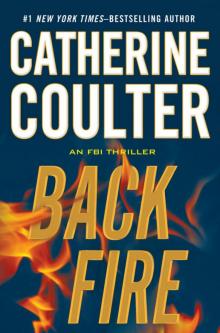 Backfire
Backfire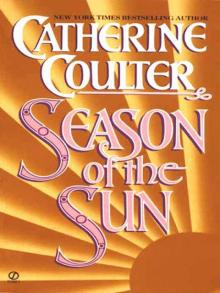 Season of the Sun
Season of the Sun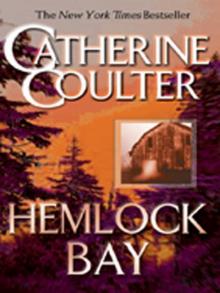 Hemlock Bay
Hemlock Bay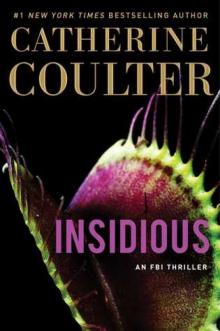 Insidious
Insidious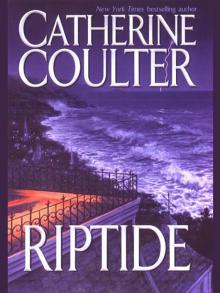 Riptide
Riptide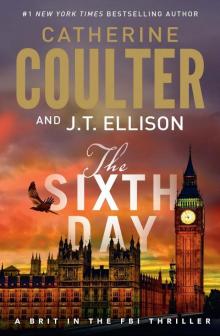 The Sixth Day
The Sixth Day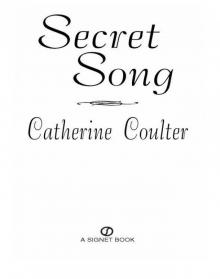 Secret Song
Secret Song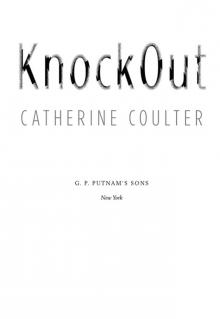 KnockOut
KnockOut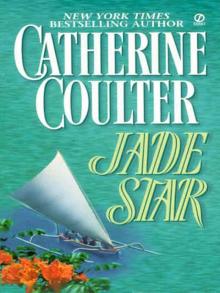 Jade Star
Jade Star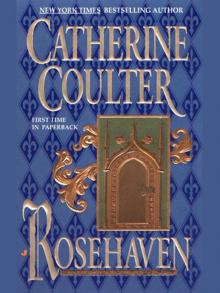 Rosehaven
Rosehaven The Hellion Bride
The Hellion Bride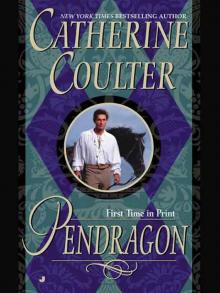 Pendragon
Pendragon Vortex
Vortex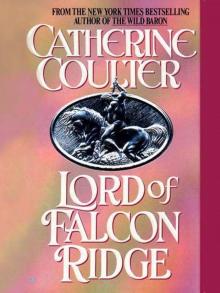 Lord of Falcon Ridge
Lord of Falcon Ridge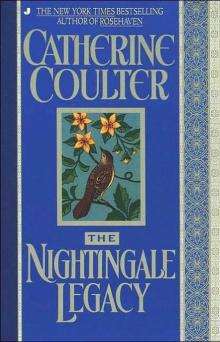 The Nightingale Legacy
The Nightingale Legacy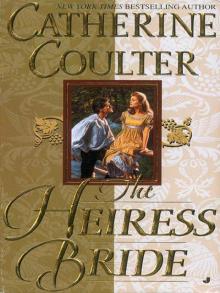 The Heiress Bride
The Heiress Bride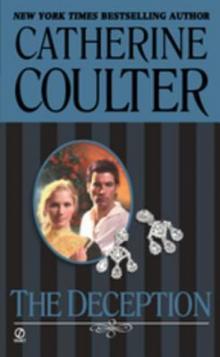 The Deception
The Deception The Maze
The Maze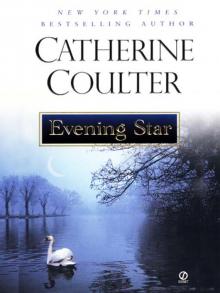 Evening Star
Evening Star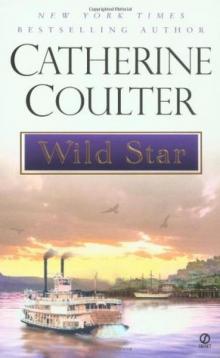 Wild Star
Wild Star The Final Cut
The Final Cut Paradox
Paradox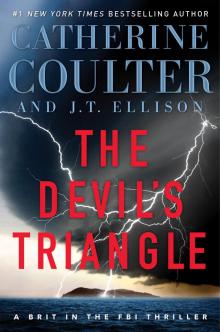 The Devil's Triangle
The Devil's Triangle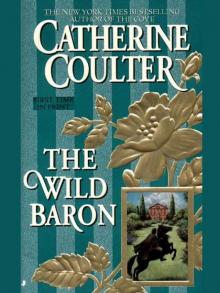 The Wild Baron
The Wild Baron Point Blank
Point Blank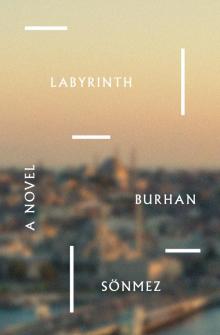 Labyrinth
Labyrinth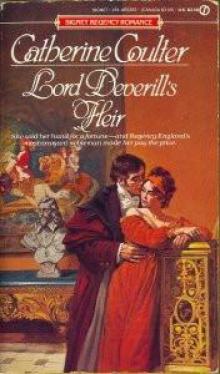 Lord Deverill's Heir
Lord Deverill's Heir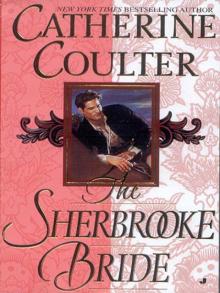 The Sherbrooke Bride
The Sherbrooke Bride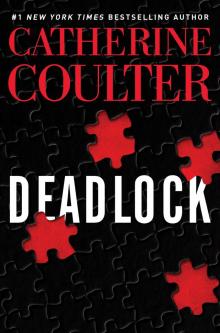 Deadlock
Deadlock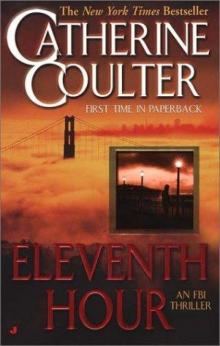 Eleventh Hour f-7
Eleventh Hour f-7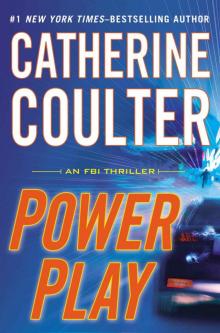 Power Play (An FBI Thriller)
Power Play (An FBI Thriller)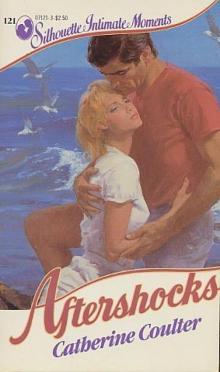 Aftershocks
Aftershocks Sherbrooke Twins tb-8
Sherbrooke Twins tb-8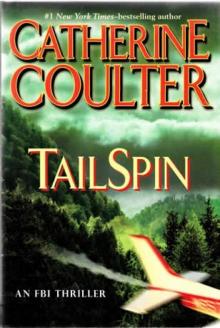 Tail Spin ft-12
Tail Spin ft-12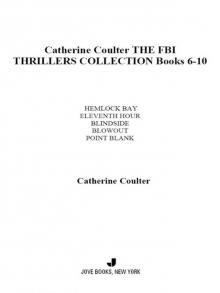 The FBI Thrillers Collection
The FBI Thrillers Collection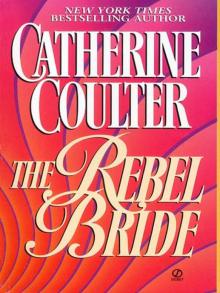 The Rebel Bride
The Rebel Bride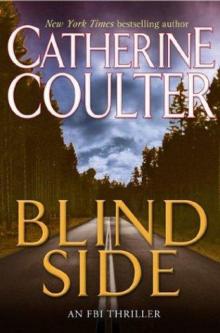 Blindside f-8
Blindside f-8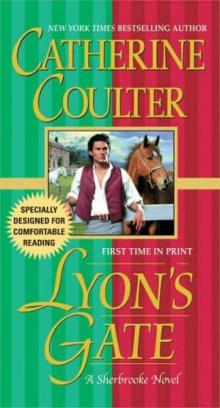 Lyons Gate tb-9
Lyons Gate tb-9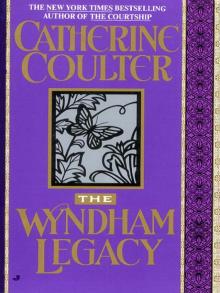 Wyndham Legacy
Wyndham Legacy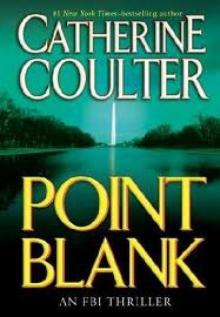 Point Blank f-10
Point Blank f-10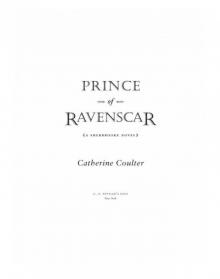 The Prince of Ravenscar
The Prince of Ravenscar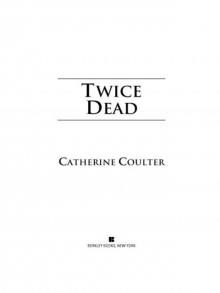 Twice Dead
Twice Dead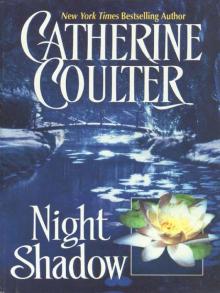 Night Shadow
Night Shadow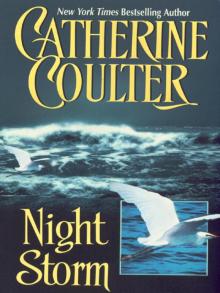 Night Storm
Night Storm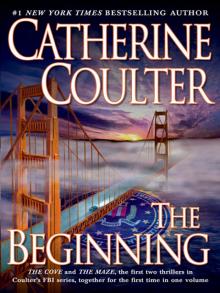 The Beginning
The Beginning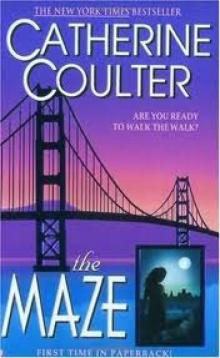 The Maze ft-2
The Maze ft-2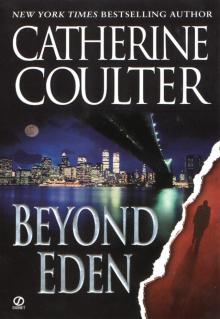 Beyond Eden
Beyond Eden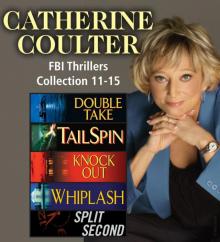 The FBI Thrillers Collection: Vol 11-15
The FBI Thrillers Collection: Vol 11-15 FALSE PRETENSES
FALSE PRETENSES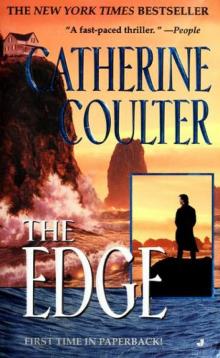 The Edge f-4
The Edge f-4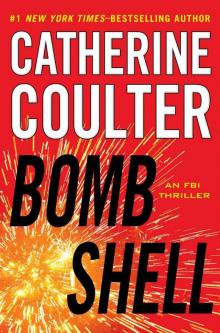 Bombshell (AN FBI THRILLER)
Bombshell (AN FBI THRILLER) The Ancient Spirits of Sedgwick House (Grayson Sherbrooke's Otherworldly Adventures Book 3)
The Ancient Spirits of Sedgwick House (Grayson Sherbrooke's Otherworldly Adventures Book 3)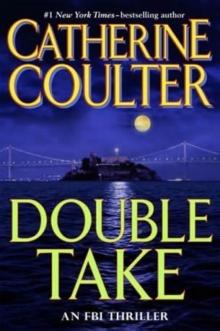 Double Take ft-11
Double Take ft-11 The Heir
The Heir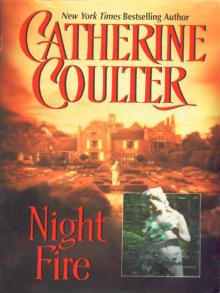 Night Fire
Night Fire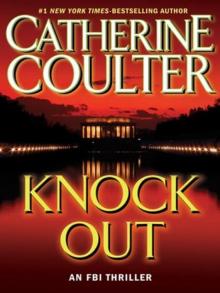 KnockOut ft-13
KnockOut ft-13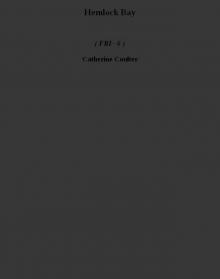 Hemlock Bay f-6
Hemlock Bay f-6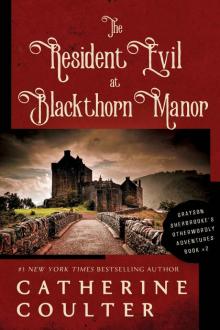 The Resident Evil at Blackthorn Manor (Kindle Single) (Grayson Sherbrooke's Otherworldly Adventures Book 2)
The Resident Evil at Blackthorn Manor (Kindle Single) (Grayson Sherbrooke's Otherworldly Adventures Book 2)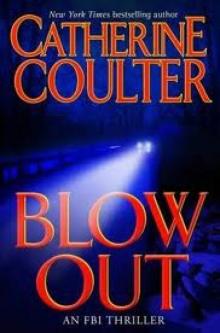 Blowout ft-9
Blowout ft-9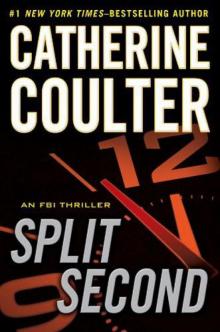 Split Second f-15
Split Second f-15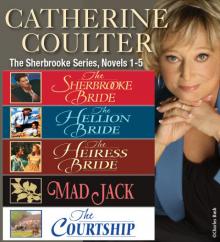 The Sherbrooke Series Novels 1-5
The Sherbrooke Series Novels 1-5 Impulse
Impulse Paradox (An FBI Thriller Book 22)
Paradox (An FBI Thriller Book 22)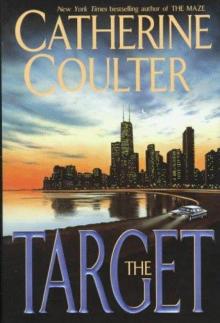 The Target f-3
The Target f-3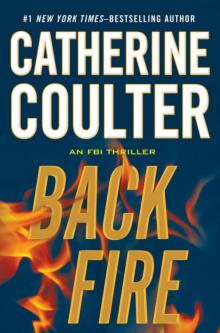 Backfire fst-16
Backfire fst-16 Born To Be Wild
Born To Be Wild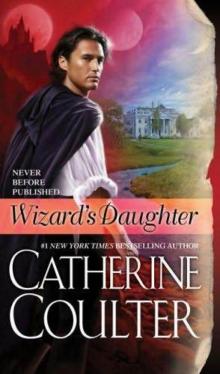 Wizards Daughter tb-10
Wizards Daughter tb-10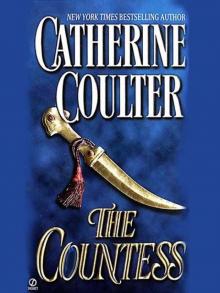 The Countess
The Countess